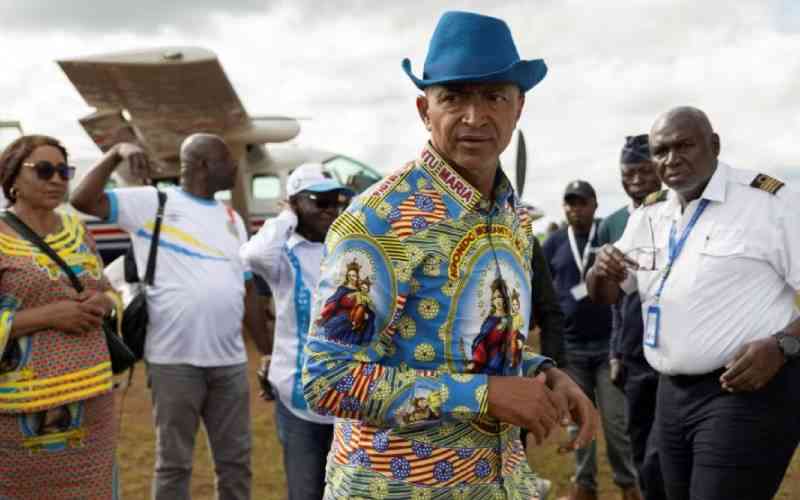
One of the main opposition candidates for Congo's presidential election next week, Moise Katumbi, suspended part of his campaign on Wednesday after violent clashes at one of his election rallies.
Live rounds were fired and several people were injured as Katumbi addressed supporters in the coastal town of Moanda on Tuesday, marking an escalation in tension ahead of the Dec. 20 vote.
There are differing accounts of the incident. The provincial government said in a statement that Katumbi's guards fired warning shots after the crowd grew rowdy, stoking tension and jostling. The police used tear gas to restore order.
Several people were injured, including a police officer who was seriously hurt, and investigations into the incident are ongoing, the statement said.
Katumbi said on X, formerly known as Twitter, that police shot live bullets at people and that the incident had been orchestrated to create violence.
"In order to avoid further provocation, I have decided to temporarily suspend my meeting with citizens in (the cities of) Kananga and Tshikapa," he said, referring to events scheduled for Wednesday.
Kananga and Tshikapa are in the Kasai-Central province, which is a stronghold for President Felix Tshisekedi's supporters.
Almost 44 million people are registered to vote in an election that will determine whether Tshisekedi will remain in office after a first term characterized by economic hardship and insecurity.
Katumbi is one of more than two dozen candidates in the presidential race that also includes leading opposition candidate Martin Fayulu and Nobel Peace Prize-winning gynecologist Denis Mukwege.
There have been several challenges in the run-up to the polls, including alleged irregularities in voter registration and difficulty distributing voting materials.